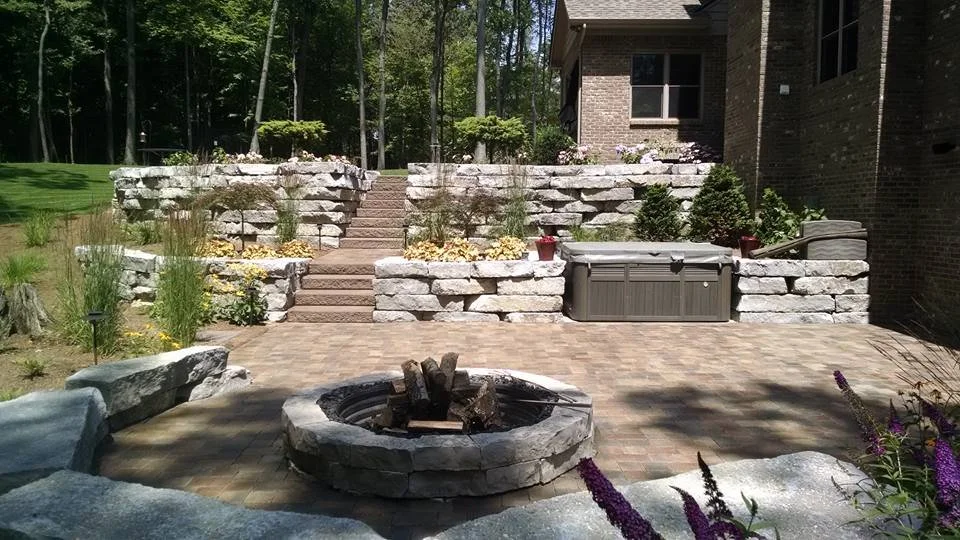West Bloomfield, MI's Guide to Choosing the Perfect Retaining Wall
In West Bloomfield, MI, the landscape of your home is not just about aesthetics; it's also about functionality and durability. One key element in achieving this balance is a retaining wall. A well-chosen retaining wall does more than just hold back soil; it adds structure, beauty, and function to your property.
Related: How a Retaining Wall Can Be a Bold Statement in the Novi and Canton, MI Areas
Understanding the Function of Retaining Walls
It's important to understand the primary function of a retaining wall. It's designed to counteract the force of gravity, thereby holding back soil that would otherwise collapse into a more natural shape. In hilly or sloped areas, retaining walls can be essential in preventing erosion and providing usable outdoor spaces.
Assessing Your Needs and Landscape
Your first step in choosing a retaining wall is assessing your landscape's needs. Consider the height of the wall, the level of soil it needs to support, and the overall aesthetic you desire. In areas like ours where weather can fluctuate dramatically, it's also crucial to consider the durability and resistance of the materials in different weather conditions.
Material Options for Durability and Style
The material you choose for your retaining wall greatly influences both its function and its appearance. Common materials include concrete block, poured concrete, stone, and traditional brick. Each material has its own set of advantages. Concrete block and poured concrete provide a modern look and are known for their strength. Natural stone and traditional brick offer a classic, natural appearance and can be more visually appealing.
Considering the Scale and Proportion
The size and shape of your retaining wall should be in proportion to your property size and the landscape around it. In our area, properties vary greatly in size, so your retaining wall should be designed to fit seamlessly with both the scale of your home and the surrounding landscape. A large, imposing wall might be overwhelming on a smaller property, while a small wall might be underwhelming on a larger estate.
Integrating With Your Landscape Design
A retaining wall should be more than just a functional structure; it should be an integral part of your overall landscape design. This means considering how it will interact with other elements of your front or backyard, such as walkways, and your lawn. In our area, where lush greenery and beautiful landscapes are common, selecting a retaining wall that complements these features is essential.
Expert Construction for Stability
Building a retaining wall is not a trivial task. It requires a deep understanding of engineering principles, particularly in areas with challenging terrains. Professional construction ensures that your wall is not only aesthetically pleasing but also structurally sound. This is particularly important for walls over a certain height, where the risk of collapse increases.
Customization Options
Consider the customization options available for your retaining wall. This could include varying the color, texture, or pattern of the materials to better suit your personal style and the character of your home. Custom features like built-in seating, outdoor lighting, or integrated planters can also enhance the functionality and appearance of your retaining wall, making it a unique feature of your outdoor space.
About the Author
It was in the early 1970s that Phil Munro was introduced to the landscape industry. His dad, Don Munro, purchased a dump truck to deliver materials and install small landscape jobs when he had free time after work and on the weekends, and he’d bring Phil along with him. After serving in the U.S. Navy in the 1980s, Phil built on this experience to start Munro Landscaping in 1987. In 1991, he incorporated as Munro’s Landscaping and Lawn Maintenance. Over the years he developed many relationships with suppliers and builders, and the company experienced massive growth: It expanded the lawn division and started a landscape construction division in the ’90s.

